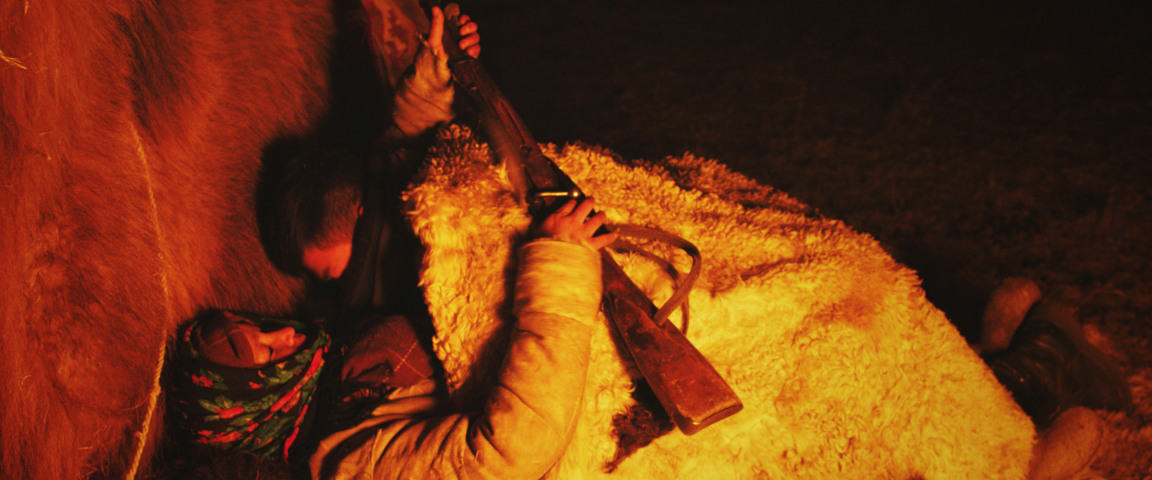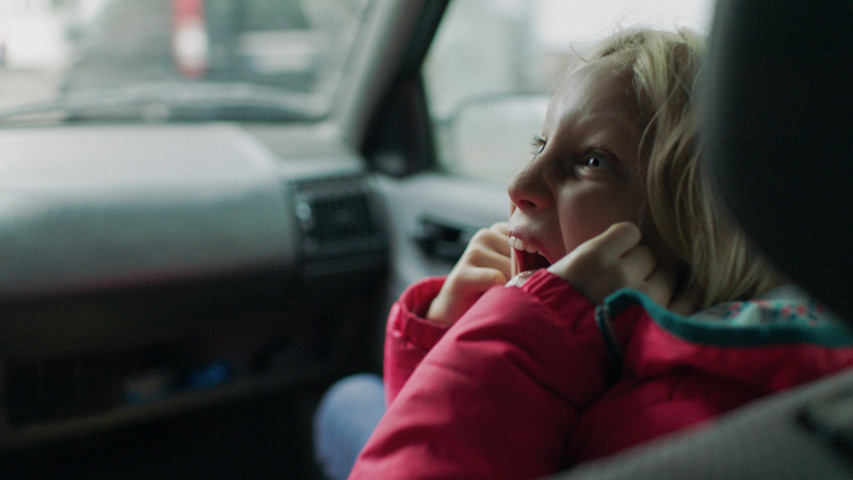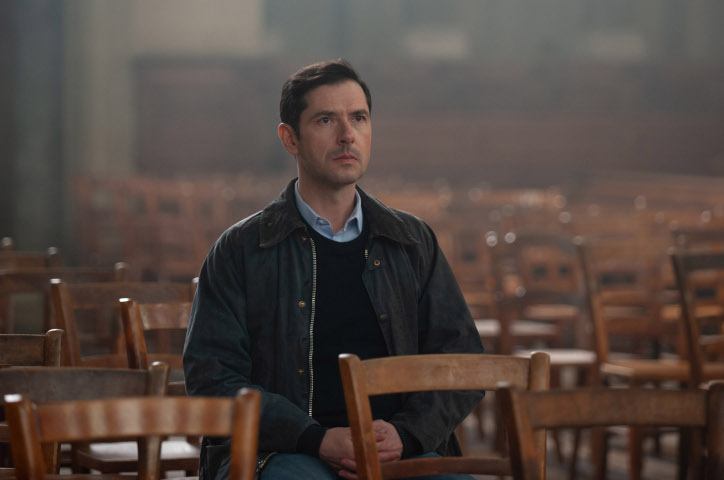Berlinale 2019 - Day 2: Don’t Run From Your Issues – Not Even to Mongolia
- Christian Hain
- Feb 9, 2019
- 7 min read
Updated: Mar 23, 2020
(Berlin.) Remember that film yesterday, The Kindness of Strangers? There was this family father having serious psychological issues... now meet Benni, nine years old and a psychopath (in making). Nora Fingscheidt’s System Crasher follows her ways from childcare facility to psychological ward to foster parents and back, from aggression to (occasionally self-)aggression, challenging the system with a mix of Tourette and uncontrolled violence.
Fingscheidt’s message seems simple: Between her outbursts, the child only cries for “Mama” (the hairdresser type of white trash with two more kids); amid the only successful therapy project - a vacation with an anger management coach/street worker in the middle of the Northern German nowhere, without electricity and running water, she even cries it when discovering her voice’s echo in the woods for the first time ever. After the obligatory initial refusal, she likes to hug that street worker guy, and if this were a conventional movie, he’d probably live happily ever after with Benni and her mum. Yet, when she briefly escapes from another asylum, and visits “Mama”, she violently beats her up with a vase (or is it a metal art object?) – Benni her mother, not the other way round, mind -, for no reason other than her boyfriend being there, too, who is not in the slightest implied to have ever done her any wrong.
There is nurture and there is nature, and obviously, that brat is born with a v e r y narcissist personality – much more tyrannical than normal for a child, also being incapable of connecting her actions to their consequences (for herself and others). A return to the old ways, as you could imagine for a moment, the film would suggest (i.e. a true family instead of foster homes and a mother with changing boyfriends, etc.) would probably not help at all. Although,... a return to some old measures: exorcism, lobotomy... - at least one of those would certainly do the job.
The world of the old ways, by the way, was the exact opposite of the one we see here: the exchangeable, could be Germany, France, Britain, the US, or wherever, monotony of “multicultural” (i.e. having traded their identity for modern style “diversity”) people living in completely sterile modern housing estates for the masses.
Note however, how all those psychologists and do-goodies in Fingscheidt’s film stop short at anything other than mechanical textbook solutions: from unprofessional, true, and thus immeasurable, affection. The street worker guy steps down from the “job”, because he “is losing his professional distance” and “begins developing a rescue complex” (his words) after having taken Benni home to his wife and children after another breakdown. Fingscheidt enjoys demonstrating how helplessly dumb that gibberish is (no ideology as inhuman as psychology, I’m telling you). Her directing by the way is great, keeping a good pace, and these are probably the most authentic children characters since Lord of the Flies. Only the Lola Runs quotes (Benni running to electronic music) are completely unasked for. And she didn’t know how to end it all, finally making Benni (inadvertently) jump from the roof of an airport, just before getting sent on another therapeutic voyage – to Kenya.
WArts Verdict: That actor playing the street worker, Albrecht Schuch, is not bad (the acting skills of a child cannot be properly judged - too many examples spring to mind of actors who never quite had the career they were promised at an early age – ever heard the name Haley Joel Osment?). And System Crasher is an unconventional film, surprisingly captivating, apparently telling of things that really do happen in our world. Yet, it is rather -SHUT UP! GIVE ME THAT BEAR, WILL YOU! I HATE YOU! F--- YOU, A—h---, AAAAHHHHHHHH!!!!!...
Nobody’s talking about the ozone layer anymore, it’s completely gotten out of fashion. There’s just not as much money in there as in climate conservatism and its global economic stimulus package. But at least François Ozon is still alive and kicking. The French filmmaker’s latest work By the Grace of God describes the foundation and following actions of a victims’ activist group denouncing a Catholic priest for having sexually abused them decades ago. What starts as the crusade of a single man – and the film starts really slow with (too) many repetitive shots of the actor walking through the empty streets of Lyon, his flashy barbour jacket blowing in the breeze -, finally gains momentum. In the end, the enemy are the church authorities themselves. The story is based on true events and the actual verdicts are not yet spoken, but hey, this is art, f—k “innocent before proven guilty”. By the Grace of God is the exact counterpart to last year’s French Catholicism movie The Prayer - good old Dualism.
There’s not much to say about the film itself, linear storytelling meets solid acting, but it might give cause to some deeper reflections. All characters, even those who openly declare to be faithful Catholics still, have somewhat changed their belief system, adapted it to contemporary expectations. A believer would not care about earthly justice at all, the necessity of suffering, and the irrelevance of this world, with Judgement Day looming anyhow. This might well be the reason why we rarely ever hear of comparable cases in the church's long history. On the other hand: What was it about “Render unto Caesar...”?
Not really important for this film and its topic, but I’ve been watching this in a press screening, with only educated people in the room (or so you would think), journalists by trade and thus most, if not all of them having earned some sort of university degree at some point of their life. Yet, when a bishop on screen explains, how the church is avoiding the term “paedophile” for the correct translation of that is “lover of children” and instead prefers to talk of “paedosexuals”, the reaction was a general outburst of laughter. Symptomatic for the intellectual quality in contemporary debates. The subtleties of language, nuancing, indeed: education, are lost on most (might be this concrete example has also something to do with the increasing inability of a fanatically materialist world to separate “love” as a per definitionem metaphysical concept/construct from sexual activity).
When an actor was telling: “Catholic or atheist, this is not a question of faith, but of morals” thereby implying an all-encompassing, unquestionable, “truth” - a phrase the debility of which you should really savour for a moment, nobody was laughing. Or cringing. But thank you, Monsieur Ozon, for singlehandedly finishing a whole philosophical discipline. Who needs ethics, when there’s a French film director? Philosophers of all ages, humble yourself before Monsieur Ozon and the omniscient common sense. At the end of the film stands of course the most naïve, the oldest, dumbest, form of theodicy issues.
It was, by the way, an interesting curatorial choice to show By the Grace of God immediately after System Crasher, in case there were any deranged individuals present who enjoyed the – arguably exaggerated – bathing and dressing scenes of that little girl a bit too much (there was this one, overweight, guy three rows to the left... no, just kidding). And don’t you say, today that priest could simply marry the boys, that’s not exactly true yet.
WArts Verdict: Confessional box or court room, jury of one, twelve, or Trinity - be that as it may but Berlinale’s jury of six will probably abstain from deciding this case on their judgement day.
Öndög starts off like a sort of Mongolian Fargo, but unfortunately director Wang Quan’an proves too much in love with his images to really care about the story. And it is a magnificent scenery indeed, these Mongolian flatlands, the camera always framing a small line of frozen taiga below an immense horizon under which few events do ever happen.
In the first scenes, we learn how in modern Mongolia, five policemen together are not equipped with even one gun. They thus need to call the help of a female camel jockey living not far – which is as relative a term as it gets, she being the only resident within a hundred kilometres, yet almost daily receiving visits from her neighbour on his motorcycle – from the place where their night patrol has found the naked body of a woman, to chase away a wolf guarding but not yet feeding on the corpse.
The murder case is not really interesting, neither to us nor to the director, it’s really all about the scenery.
That nomad-with-a-fixed-abode woman then takes care of a young police officer who is left behind by his colleagues when his colleagues go fetching CSI (and one or rather several days later return with the prime suspect, wherever they might have found him, or what proves they got against him). She even lets him impregnate her, reclining against the ruminating camel and shooting the returning wolf (a bitch in search of food for her own litter as she was telling us before – give/receive alife-take a life, I guess) in the middle of the act.
Before, he kept himself warm dancing around the corpse - thank God, he brought his iPod, and unlimited battery! Interesting playlist by the way, from very modern Chinese sounds to Elvis who would never have dreamt of this. But they sadly forgot to add a soundtrack to the following sit-at-the-campfire-smoke-get-drunk-and-get-it-on scene (my mind reflexively played Let’s Get It On, Marvin Gaye would be a perfect match here. Note: that stare-like-a-wolf thing does not work in real life. Tried it immediately upon leaving the cinema.)
In the last scenes, the pregnant woman (seems to) give in to the repeated marriage proposals of her neighbour with whom we learn, she’s already had two children in the past, but they did not survive. This, after he’s helped her with a cow (yak?) giving birth to a calve that, being taken immediately into the tent for protect it from the cold, at one point cries for “Mama” almost as frantically as Benni did. It’s a very natural, down-to-earth, indeed: animalistic, life in rural Mongolia. I cannot possibly imagine, any animal welfare association has monitored the making of this movie, though: A sheep gets killed in front of the camera – which the film team might at least have eaten afterwards (a short cut first, then pull out the heart with your fingers, it’s easy as that), and although we don’t see the actual shooting, that wolf‘s body is looking very real to me, too (they probably did not eat her). Having said this,... that human carcass is also looking very real,... can we be sure, that.... yes, probably, no don’t you worry!
WArts Verdict: Önög – the name means “dinosaur egg, and that woman’s nickname being “dinosaur” too, but I’ll spare you any speculations on Quan’an’s inspirations here) won’t win any other award than Best Camera, but this one it should pocket (is there actually a Best Camera Bear?). Unless the Golden Horde comes migrating to Europe again before the festival is over.






Comments